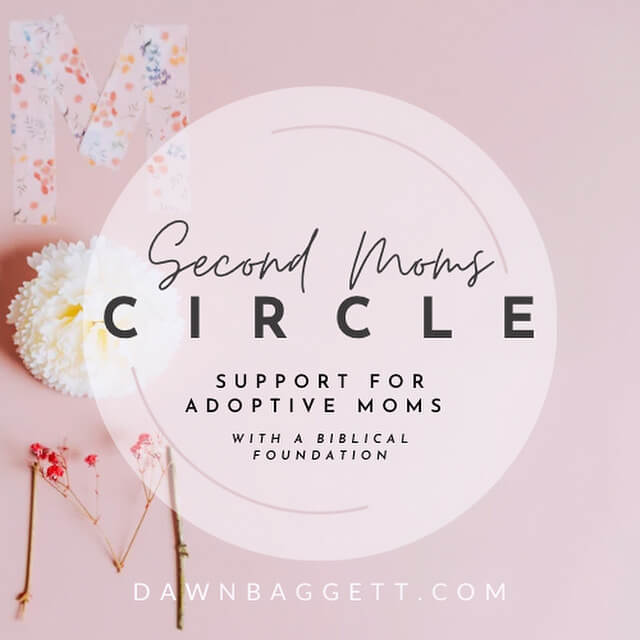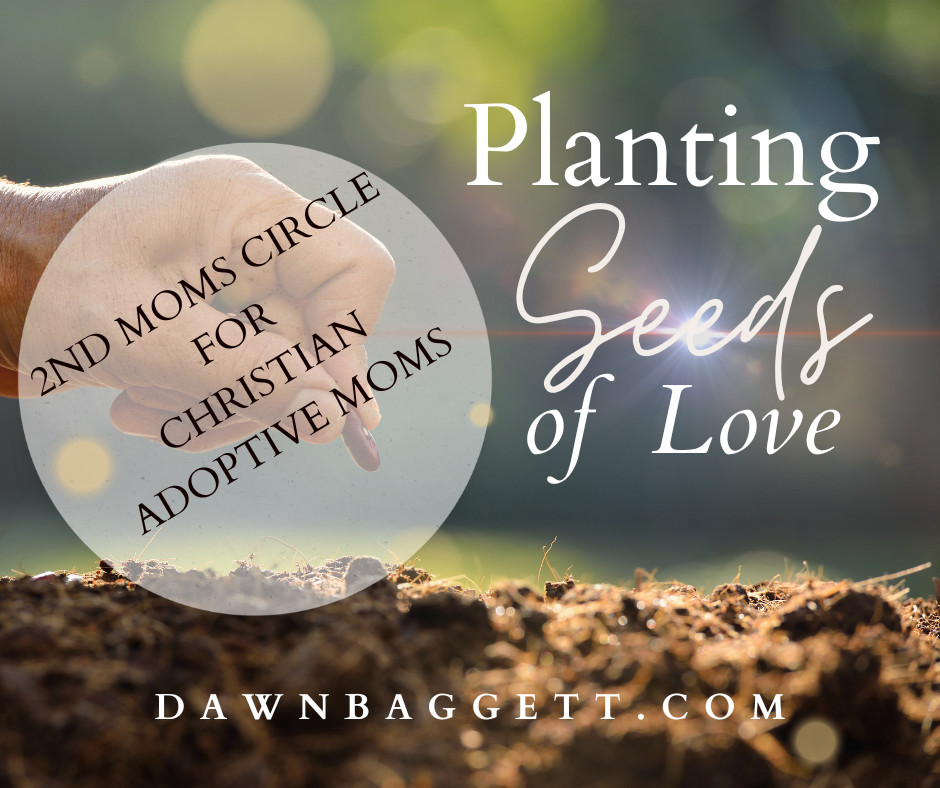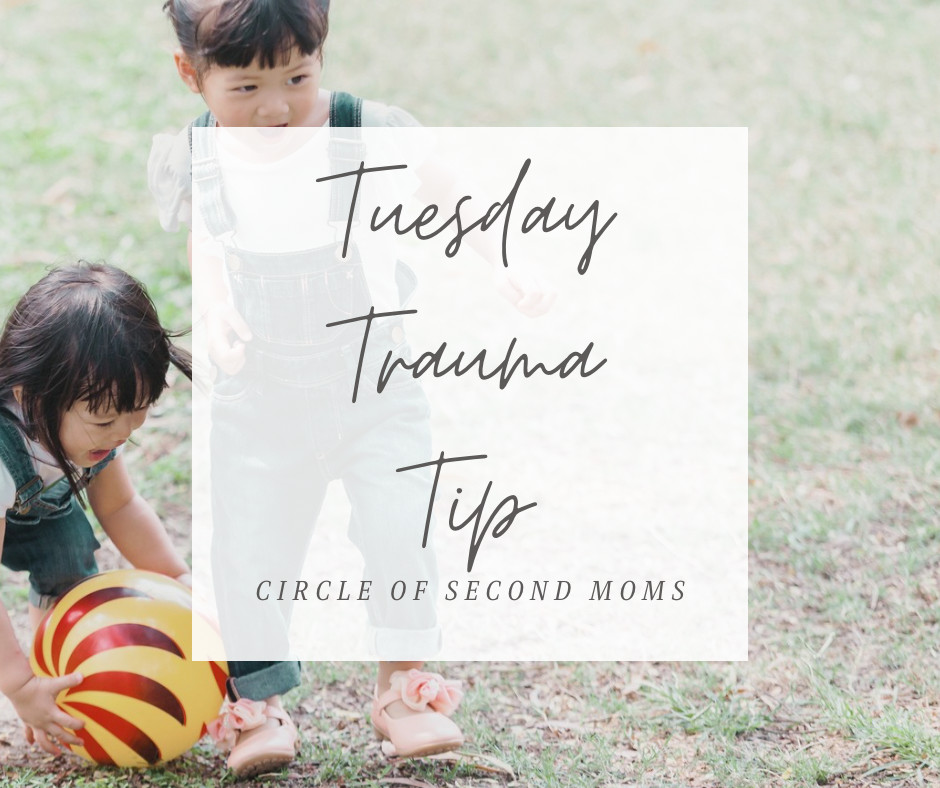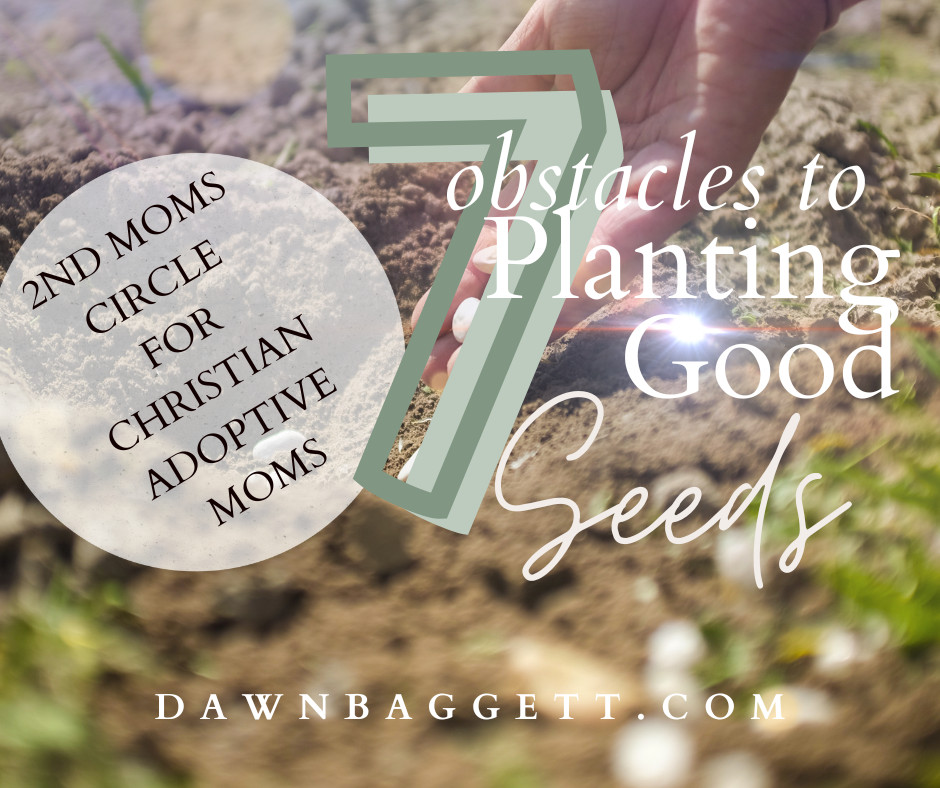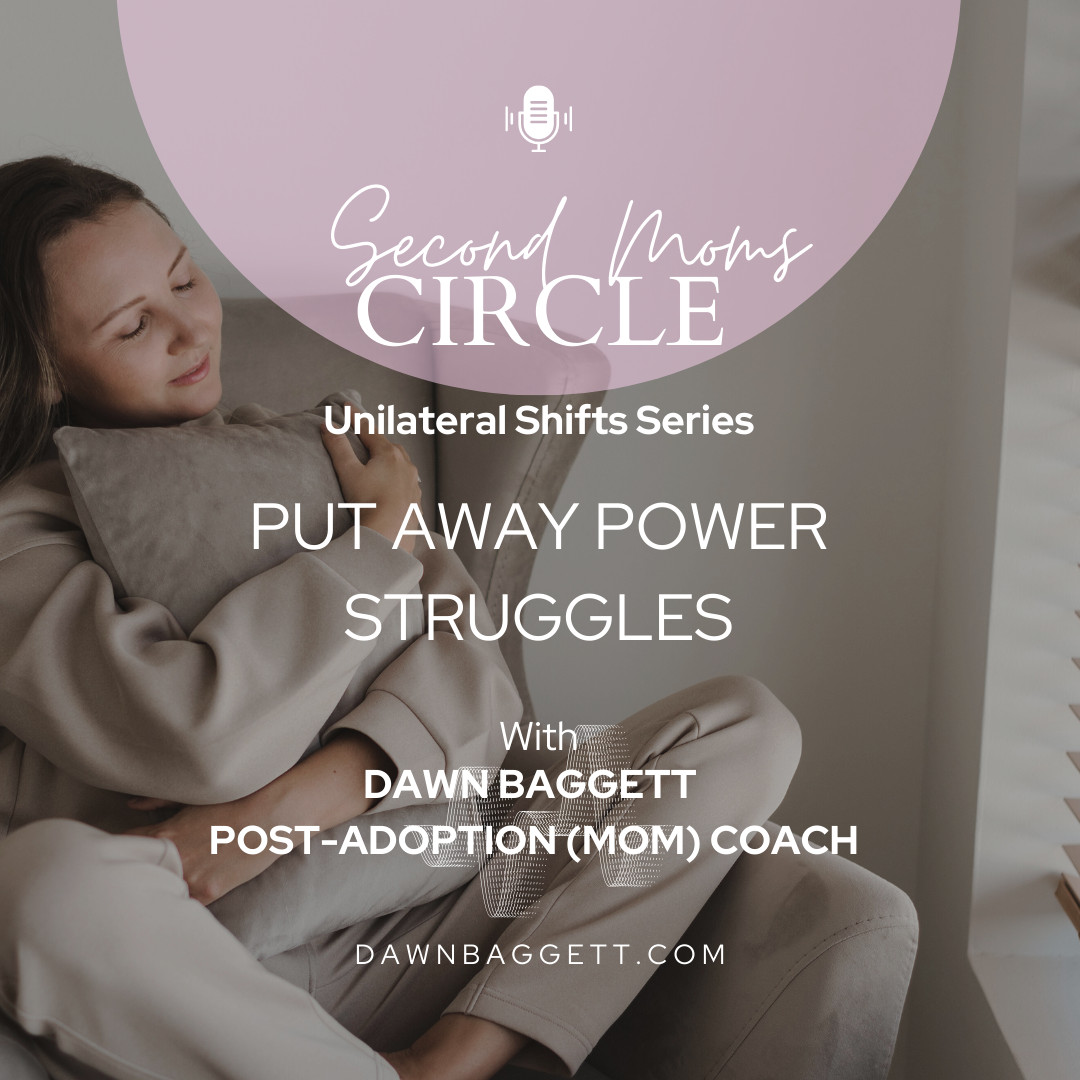
If your adopted child has no memories or very limited memories about their life prior to coming to live with you, does that mean that any trauma they suffered has no effect because they don't remember any of it?
Let's find out.
This episode of 2nd Moms Circle for Christian Adoptive Moms is a bonus Tuesday Trauma Tip. I'm Dawn Baggett, your host and post-adoption mom coach. Understand that I am not a doctor or a therapist, and nothing in this podcast content is offered as medical or mental health diagnoses, treatment, or cure.
That said, it's my goal to keep these bonus episodes short. So, here's your trauma tip for today:
Today's Tuesday Trauma Tip
Do not rely on what a child explicitly remembers to judge whether some past experience or trauma affects them in the present.
Just because they were “too young to remember” or can't recall prior early childhood, or even pre-birth traumas, it doesn't mean that a child isn't affected and doesn't have lingering effects of an earlier trauma.
I wonder how understanding this Tuesday Trauma Tip can help you today in interacting with your child, your teen, or even your young adult who may have been affected by early childhood trauma.
Group members can continue the discussion over in our Facebook group.
Be sure to follow the podcast and join the Facebook group, Circle of Second Moms for more targeted support as you navigate the journey in your post-adoptive family.
Interested in individual coaching? Let’s talk. Click the Coaching tab in menu at the top of this page to get started.
And as always,
KEEP LEARNING - KEEP GROWING - KEEP LOVING
💜🩷♥️
Dawn
______________________________________________________

Post Adoption (Mom) Coach
“STANDING IN THE GAP FOR 2ND MOMS”
Me too!
Publishing this podcast & companion blog is one way that I stand in the gap for second moms with similar challenges to what I’ve gone through myself as an adoptive mom.
Listen & subscribe to the podcast for free on your favorite listening platform.
(Scroll down for Apple Podcasts & Spotify links).
The companion Circle of Second Moms Facebook group is a place to go deeper on topics that we touch on in the public podcast episodes along with guided journaling and more.
Tap the JOIN LINK HERE for group access.
Group members who want next level support through private coaching with me are invited to apply for private coaching by scheduling an application call. To do that click HERE.
Through these avenues it’s my desire that many adoptive moms are able to close the gap and feel fully supported in a way that align with their Christian values and helps them grow in their faith while feeling more confident and empowered in their mom roles and beyond.
DISCLAIMER: I’m not a doctor nor a therapist. None of the content published on this website is offered or presented as medical or mental health, diagnosis or treatment. As a coach I do not offer mental or medical health diagnosis, treatment or cures. Furthermore, nothing herein is to be considered professional legal advice.

Welcome to Tuesday's Trauma Tips here on the 2nd Moms Circle podcast for Christian Adoptive Moms. I'm Dawn Baggett, your host. Let's get started.
Today, I'm sharing a Tuesday Trauma Tip. Our Trauma Tips on Tuesdays are going to be shorter episodes. That's the plan in between our regular episodes that come out later in the week.
So for today's Tuesday Trauma Tip, let's just dive in. Attachment begins before birth. Assaults from drugs, alcohol, nutritional deficits, physical trauma, and emotional trauma, all kinds of these things can and do affect the preborn child.
brain growth before & after age three
80 to 85% of the brain is developed by age three. So in many cases, your adopted child or children did not even come into your world until after this age. Now, after the time of rapid development, the brain still retains some plasticity.
Plasticity meaning that it can still be changed, and it can still grow new pathways. And progress or change can still be made. A child's upper brain actually continues to develop, albeit at a slower pace, throughout childhood.
This brain region, the upper brain, controls reason, impulse control, empathy, memory, and decision making. So you can understand why these areas from
this upper brain region are so important in just the development and the functionality of your child for their life, for their entire life. While this can be frustrating for us as parents, this knowledge that I just went over, it can also be encouraging to know that there is still room for progress.
How does knowing this information help you to meet your child where they are now, while also simultaneously holding space for growth in these important areas?
Message me or hop over into the Facebook group, and let's continue this discussion over there. Thanks for listening, and I hope this gave you something to think on and reflect on in today's Tuesday Trauma Tip.
And as always,
KEEP LEARNING - KEEP GROWING - KEEP LOVING
💜🩷♥️
Dawn
______________________________________________________

Post Adoption (Mom) Coach
“STANDING IN THE GAP FOR 2ND MOMS”
Me too!
Publishing this podcast & companion blog is one way that I stand in the gap for second moms with similar challenges to what I’ve gone through myself as an adoptive mom.
Listen & subscribe to the podcast for free on your favorite listening platform.
(Scroll down for Apple Podcasts & Spotify links).
The companion Circle of Second Moms Facebook group is a place to go deeper on topics that we touch on in the public podcast episodes along with guided journaling and more.
Tap the JOIN LINK HERE for group access.
Group members who want next level support through private coaching with me are invited to apply for private coaching by scheduling an application call. To do that click HERE.
Through these avenues it’s my desire that many adoptive moms are able to close the gap and feel fully supported in a way that align with their Christian values and helps them grow in their faith while feeling more confident and empowered in their mom roles and beyond.
DISCLAIMER: I’m not a doctor nor a therapist. None of the content published on this website is offered or presented as medical or mental health, diagnosis or treatment. As a coach I do not offer mental or medical health diagnosis, treatment or cures. Furthermore, nothing herein is to be considered professional legal advice.

“BECAUSE I CANNN…!!”
I vividly remember those words coming from my teenage daughter as I questioned her about her motivation for something she had done.
Not the words of someone who is open to a reflective dialog or reasoned conversation.
And that was that.

